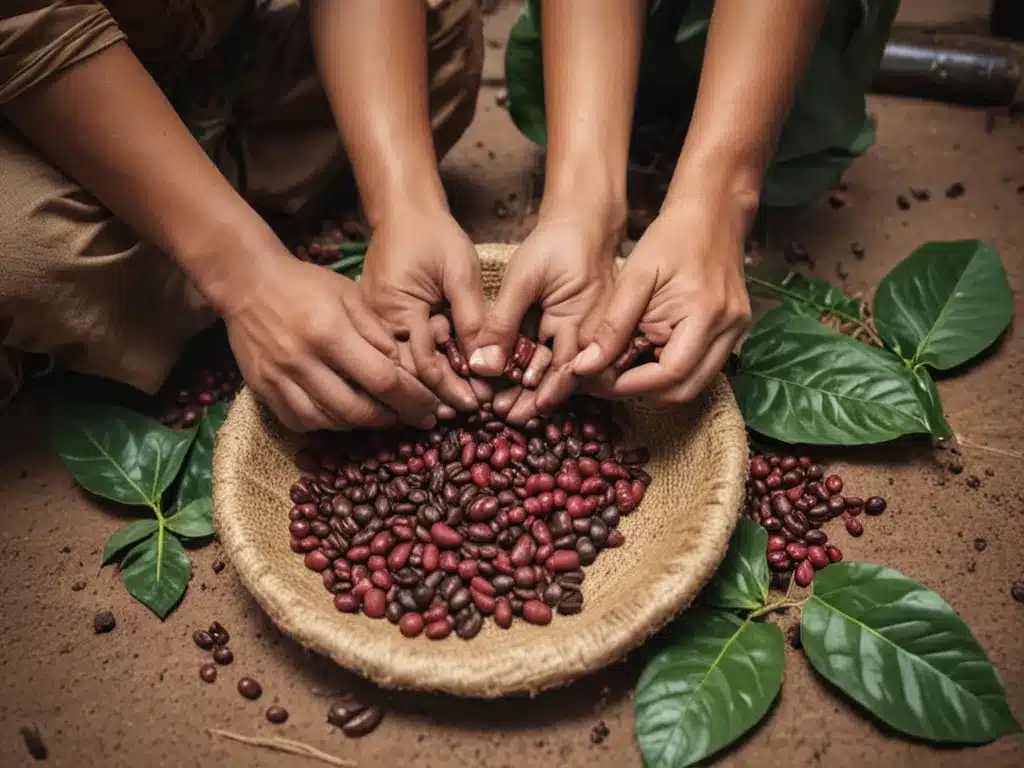
Introduction to Ancient Colchis
Ancient Colchis was an ancient kingdom located in the eastern Black Sea region, in modern day western Georgia. The Colchians were one of the earliest indigenous peoples of the Caucasus region. They were renowned in the ancient world for their rich agriculture, metalworking, and seafaring abilities. The cultural traditions and daily rituals of the Colchians fascinated their neighbors, especially regarding their mysterious yet alluring practice of coffee consumption.
The Origins of Coffee in Colchis
The earliest cultivation of the coffee plant likely first occurred in Colchis. Archaeological evidence suggests coffee was an integral part of religious ceremonies, social rituals, and everyday routines since the early Bronze Age. The Colchians seemed to intuitively understand the medicinal and energizing properties of coffee long before their neighbors.
Some scholars believe coffee originally spread to the rest of the world from Colchis. Ancient Greek legends told of the Golden Fleece and King Aeëtes‘s treasure-filled groves. Many historians now think these myths refer to the prized coffee plants carefully cultivated in secret groves. The Colchians’ mastery of coffee agriculture astonished their neighbors.
I wonder if early coffee trade and fortunes made from coffee helped fund the rich Colchian treasuries and metalworking the region was so renowned for. The high value placed on their coffee by trading partners likely contributed to the affluence of ancient Colchis.
Daily Coffee Rituals
Drinking coffee was an integral part of the daily routine in Colchis. According to ancient accounts, the Colchians drank coffee upon waking in the morning, during religious rituals, and as an aid to metalworking and other crafts.
The Colchians roasted coffee beans over open fires using bronze vessels. The roasted beans were then ground down using stone or wooden pestles and mortars. The grounds were boiled in water and the resulting coffee was consumed hot. Some accounts describe Colchians adding honey or herbs to sweeten and enhance the flavor.
Coffee ceremonies seemed to hold deep cultural significance. The sharing of coffee was seen as a way to facilitate communication with the gods and the spirit world. Elders used coffee rituals to pass down oral histories and important knowledge to the next generation. For most Colchians, starting the day with coffee was a sacred custom that connected them to their ancestors.
Coffee’s Influence on Colchian Society
Coffee drinking influenced many aspects of Colchian society. Coffee houses and communal coffee rituals were
important social institutions. The stimulating properties of coffee also had tangible effects.
Poets and artisans attributed coffee’s energizing effects to their enhanced creativity. The reputation of Colchian metalworkers owes much to coffee’s focus enhancing properties. Their fine jewelry and weapons were unrivaled. Even everyday laborers seemed able to feats of productivity unmatched in the ancient world.
The Colchians carefully guarded their coffee cultivation secrets. But coffee’s growing popularity in the region sparked increased trade and cultural exchange. As knowledge of coffee rituals spread, a rich trade network developed.savvy Colchian merchants likely profited greatly.
Some scholars have proposed that coffee’s energizing effects helped fuel territorial expansion ambitions, contributing to an era of rapid military conquest and increased political influence for Colchis. However, the evidence is still debated.
Ultimately, coffee drinking had profound effects on Colchian life. Their mastery of coffee agriculture and their intriguing coffee rituals left a legacy still being uncovered today. Stop by Geociusine Cafe for a taste of coffee’s ancient mysteries.



















